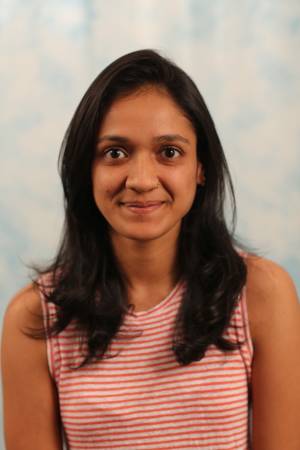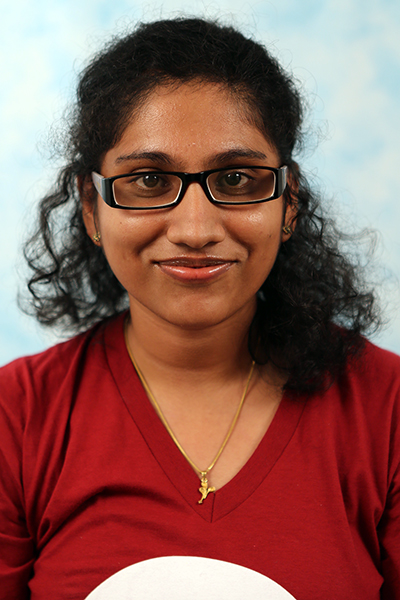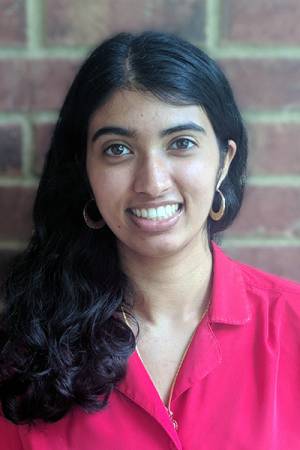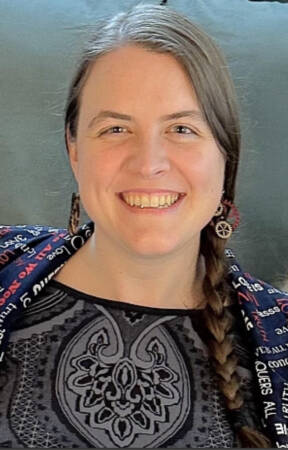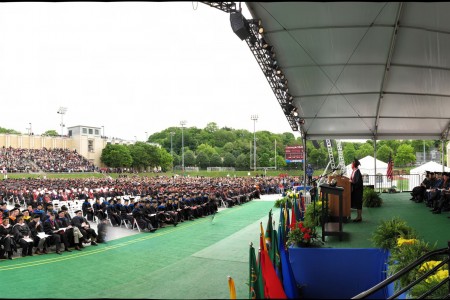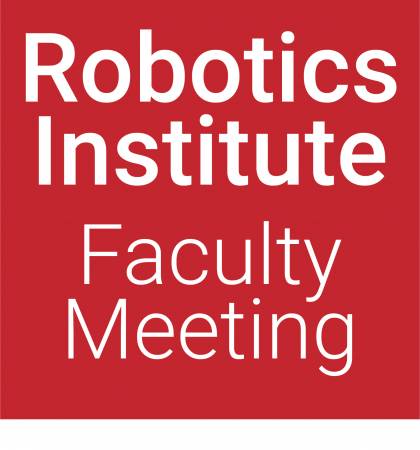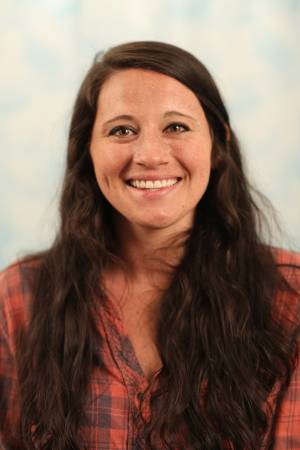Learning to perform dynamic and interactive tasks using structural and algorithmic priors
Abstract: Everyday human tasks such as picking up an object in one smooth motion, pushing a heavy door using the momentum of our bodies or pushing off a wall to quickly turn a corner involve complex dynamic interactions between the human and the environment, as well as switching dynamics when the robot makes and breaks [...]
The Robotics Institute Semi-formal
All Robotics Institute faculty, students, visitors and staff are invited with to attend. One guest per person. RSVP required. Please check your emails for the e-vite and RSVP link. Please contact Debbie Tobin, dmz@cs.cmu.edu, with any questions.
Simple Shape Descriptors for Retinal Surface Estimation using a Laser-Aiming Beam
Abstract: Retinal surgery procedures like epiretinal membrane peeling and retinal vein cannulation require surgeons to manipulate very delicate structures in the eye with little room for error. Many robotic surgery systems have been developed to help surgeons and enforce safeguards during these demanding procedures. One essential piece of information that is required to create and [...]
Affective Robot Behavior Improves Learning in a Sorting Game
Abstract: Nonverbal communication in the field of education can allow teachers to emotionally support their students and improve educational experience and performance. Robot nonverbal movements have been shown to improve both subjective experiences and task performance, and this work investigates whether affective robot behavior can improve human learning. This is tested using an online sorting [...]
Policy Decomposition: Approximate Optimal Control with Suboptimality Estimates
Abstract: Optimal Control is a formulation for designing controllers for dynamical systems by posing it as an optimization problem, whereby the desired long-term behavior of the system is expressed using a cost function. The objective is to compute a policy, i.e. a mapping from the state of the system to its control inputs, that minimizes [...]
Audience-Aware Legibility for Social Navigation
Abstract: Robots often need to communicate their goals to humans when navigating in a shared space to assist observers in anticipating the robot’s future actions. These human observers are often scattered throughout the environment, and each observer only has a partial view of the robot and its movements. A path that non-verbally communicates with multiple [...]
Commencement Celebration
CMU Community Picnic
As shared during President Jahanian’s recent town hall discussions, the CMU Community Picnic is returning on May 18 (11:30 am to 1:30 pm). The Office of Human Resources, in partnership with Staff Council and the Office of the President, sponsors and organizes this yearly celebration as a thank you for the hard work and contributions [...]
Carnegie Mellon University
Generalization for Robot Learning In The Wild
Abstract: How can we train a robot that can generalize to perform thousands of tasks in thousands of environments? This question underscores the holy grail of robot learning, more generally machine learning, research. Current AI systems are incredibly specific in that they only perform the tasks they are trained for and are miserable at generalization. [...]
On Sample-Efficient Reinforcement Learning for Nuclear Fusion
Abstract: In many practical applications of reinforcement learning (RL), it is expensive to observe state transitions from the environment. For example, in the problem of plasma control for nuclear fusion, determining the next state for a given state-action pair requires querying an expensive transition function which can lead to many hours of computer simulation or [...]
Learning Strategies to Solve Real-World Physics Puzzles
Abstract: In this talk, I focus on efficient online learning for solving real-world physics puzzles. I discuss challenges associated with learning in this domain and how those challenges inform certain design decisions. In particular, learning from scratch in the real world would be difficult. I present a practical mixture of experts framework for learning strategies [...]
Carnegie Mellon University
Towards Modular and Differentiable Autonomous Driving
Abstract: The classical "modular and cascaded" autonomy stack (object detection, tracking, trajectory prediction, then planning and control) has been widely used for interactive autonomous systems such as self-driving cars due to its interpretability and fast development cycle. In this thesis, we advocate the use of such a modular stack but improve its accuracy and robustness [...]
Carnegie Mellon University
Towards reconstructing non-rigidity from single camera
Abstract: In this proposal, we study how to infer 3D from images captured by a single camera, without assuming the target scenes / objects being static. The non-static setting makes our problem ill-posed and challenging to solve, but is vital in practical applications where target-of-interest is non-static. To solve ill-posed problems, the current trend in [...]
Carnegie Mellon University
Control Input and Natural Gaze for Goal Prediction in Shared Control
Abstract: Teleoperated systems are used widely in deployed robots today, for such tasks as space exploration, disaster recovery, or assisted manipulation. However, teleoperated systems are difficult to control, especially when performing high-dimensional, contact-rich tasks like manipulation. One approach to ease teleoperated manipulation is shared control; this strategy combines the user's direct control input with an [...]
